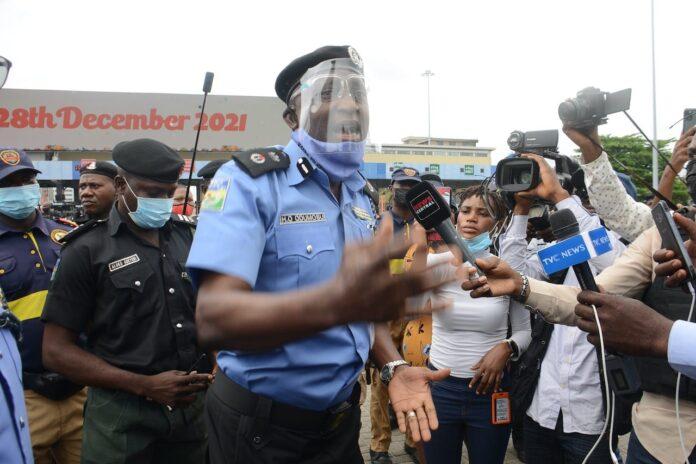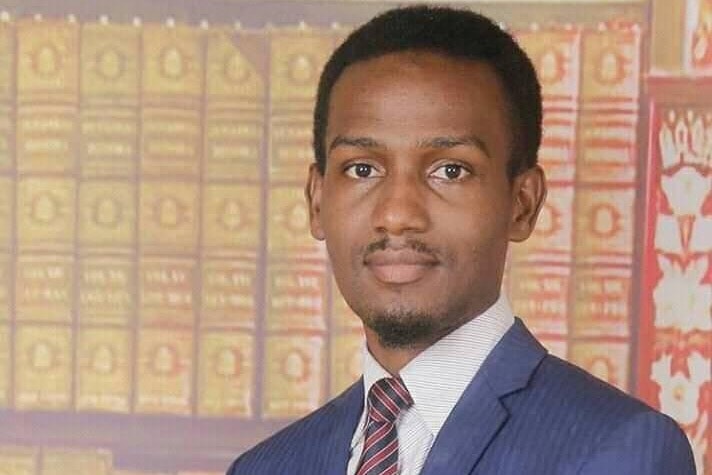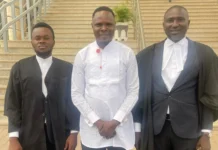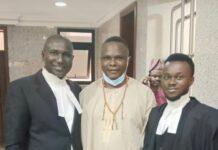
Social media critics are being relentlessly threatened or arbitrarily arrested, primarily through the Cybercrime Act.
This statement was originally published on mfwa.org on 5 March 2024.
It has been four years since Abubakar Idris, popularly known as Dadiyata, a social media critic, popular for his frequent criticism of the Nigerian government and its policies, was abducted in Kaduna State. He is yet to be found.

On August 1, 2019, some unidentified men had picked Dadiyata from his residence in Barnawa neighbourhood of Kaduna State, and taken him away in his BMW car.
Suspecting agents of the dreadful State Security Service (SSS) to be the abductors, his wife, Khadija Ahmad, sued the Kaduna command of Nigeria’s secret police, the Commissioner of Police and the state government, seeking the “unconditional release” of her husband and payment of the sum of ₦50 million in damages. But both the SSS and Police denied arresting Dadiyata.
While Dadiyata’s mother lost her life as a result of depression that followed the abduction of her son, his father, Danjuma Yaro recently told Amnesty International that he feels bitterness, constant worry and sadness about his missing child. His brother, Usman Idris, also said the family is suffering as a result of the absence of their breadwinner.
Like Dadiyata, many known critics of the Nigerian government on social media have experienced harassment, arrest, and threats to their lives. In fact, some months before Dadiyata’s case, the officers of the Nigerian police in Kaduna arrested Steven Kefason, a journalist and critic of the government. They subsequently detained him for 162 days over a Facebook post. Though he was not tortured while in detention, Kefason said life in the prison was “brutish”.
Arrested in 2020, Babatunde Olusola, an orphan and final year student studying Chemical Engineering at the Ladoke Akintola University (LAUTECH), Ogbomoso, Oyo State, was held in detention for 81 days at the Police Force Criminal Investigation Department in Abuja. Olusola was arrested for creating a parody Twitter account of ex-president Goodluck Jonathan to criticise the government. Similarly, in May 2021, Sunday Egena Odeh, a state house correspondent of People’s Daily, an Abuja-based newspaper, was arrested by officers of the Nigeria Police Force on the orders of the Benue state government. Odeh’s offense was his Facebook criticism of ex-governor, Samuel Ortom, over the way he handled a communal conflict in the state. It took the joint efforts of media rights groups before he regained his freedom on the same day.
In November 2022, a final-year student of Federal University, Dutse, Jigawa State, Aminu Muhammad, was apprehended for mocking former Nigeria first lady, Aisha Buhari, on Twitter. The 23-year-old Aminu, from Bauchi State, was taken away around 12 noon by operatives of the Department of State Service (DSS). He had criticised the first lady during a time when students were idle at home as a result of months-long industrial action by the Academic Staff Union of Universities (ASUU). Aisha Buhari later withdrew the case against Aminu Muhammad.
Also, a journalist who works for a Katsina-based Hausa language television station, Tambari Hausa TV, Rukayya Aliyu – Jibia alleged that her life was in danger after an altercation with the police in May 2023. She said she was arrested for criticising the police public parade of four girls allegedly arrested for prostitution on her personal TikTok account. In another incident that occurred in July 2023, a popular broadcast journalist, Chinonso Uba, otherwise known as Nonso Nkwa, was whisked away by police officers after he finished anchoring his morning programme on Ozisa FM, a radio station in Owerri, Imo State. The journalist who initially resisted arrest, expressing fears that he might be killed by the officers, is known to be critical of the administration of Governor Hope Uzodinma of Imo State.
Even as recently as February 6, 2024, the police arrested and detained Adisa-Jaji Azeez, Salihu Ayatullahi, Salihu Shola Taofeek, journalists from the online news site Informant247 on charges of conspiracy, cyberstalking, and defamation under the infamous section 24 of Nigeria’s cyber security law. The arrest followed a critical report by the online news portal about the Kwara State Polytechnic.
Although by no means exhaustive, the above cases of repression of social media publications show the Nigerian authorities’ aversion for freedom of expression online.
While Section 39 of the 1999 Constitution of the Federal Republic of Nigeria, which guarantees the right to freedom of expression says “every person shall be entitled to freedom of expression, including freedom to hold opinions and to receive and impact ideas and information without interference,” the government of Nigeria has on several occasions launched a campaign to suppress this right in digital spaces through various attempts to regulate social media.
In 2019, Nigerian authorities introduced an anti-social media bill at the National Assembly. The proposed legislation officially called the “Protection from Internet Falsehood and Manipulations Bill” would allow the government to cut off internet access or block specific social media platforms such as WhatsApp, Facebook and Twitter at its own discretion. “The law enforcement department may direct the NCC [Nigerian Communications Commission] to order the Internet access service provider to disable access by users in Nigeria to the online location and the NCC must give the Internet access service provider access blocking order,” it says.
Although the Socio-Economic Rights and Accountability Project (SERAP) in 2023, urged the Senate President, Godswill Akpabio, and the Speaker, Tajudeen Abbas, to reject the social media regulation bill, noting that the passage of the bill would unduly restrict the rights to freedom of expression and privacy, Femi Gbajabiamila, chief of staff to President Bola Tinubu, insists that social media must be regulated.
Already, the controversial Cybercrime Act which was passed into law in 2015, has many provisions that are used to violate the constitutional provision of the right to freedom of expression and popular journalists that have been illegally detained by the law include Luka Binniyat, Jones Abiri, and Agba Jalingo. Section 24 of the cybercrime law violates the rights to freedom of expression, information and other rights of human rights defenders, activists, bloggers, journalists, broadcasters and social media users through the repressive use andinterpretation by agents of the government.
Interestingly, the ECOWAS Court of Justice in March 2022, ordered the Nigerian government to amend the controversial section which is widely viewed as a weapon for muzzling citizens’ rights to freedom of expression. The court held that the provision is not in conformity with Articles 9 of the African Charter on Human and Peoples’ Rights (ACHPR) and the International Covenant on Civil and Political Rights (ICCPR).
Meanwhile, the Nigerian Senate formally commenced the process of amending the Cybercrime Act 2015 in November 2023 to sanitise the cyber space in Nigeria. Though not specifically in response to the court order, the amendment provides an opportunity for a repeal of the catch-all Section 24 which has become the nightmare of web journalists and social media activists. The Nigeria Union of Journalists (NUJ) has consequently made a presentation to the House demanding the amendment of the controversial section of the cybercrime law, arguing that it undermines press freedom and freedom of expression online.
The Media Foundation for West Africa (MFWA) deplores the rampage against journalists and citizens for their critical or disapproving publications online. The government must stop incessant attacks on freedom of expression, protect all citizens of the country regardless of their views about the policies of the government and ensure that citizens enjoy the dividend of democracy.
Instead of pursuing its endless attempt to gag dissenting voices on social media, the Nigerian government shuld collaborate with agencies fighting misinformation and disinformation through fact-checking as a means of promoting fact-based discourse on social media and ethical journalism online
Lastly, security agents and state officials must put an end to arbitrary arrests of social media critics and release those held in detention over their efforts to hold power to account.
To Advertise or Publish a Story on NaijaLiveTv:
Kindly contact us @ Naijalivetv@gmail.com
Call or Whatsapp: 07035262029, 07016666694, 08129340000


![Nigeria’s cybercrime reforms leave journalists at risk – Report Journalists are seen stationed opposite the Federal High Court in Abuja, Nigeria on July 26, 2021 [Reuters/Abraham Achirga]](https://www.naijalivetv.com/wp-content/uploads/2024/04/photo-output-7-218x150.jpeg)






